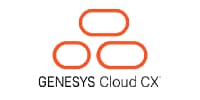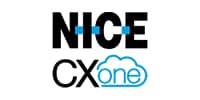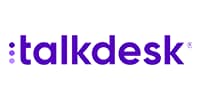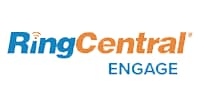Introduction
Enterprises today face increasingly high expectations for customer service: fast response times, multi-channel support (voice, chat, SMS, social), consistent quality, and data-driven insights. A well-designed Call Center Software (or Contact Center Software) is critical to deliver on those expectations. It helps route calls intelligently, monitor and coach agents, aggregate data, automate routine tasks, and scale with demand.
Yet choosing the right software is complex. Enterprises must evaluate ease of use (for agents, supervisors, admins), core feature depth (IVR, omnichannel, analytics, AI), integration with existing systems (CRM, telephony, workforce tools), scalability (number of agents, geographic distribution, surge capacity), pricing (per agent, per usage, enterprise licensing), and what real users think. This review examines five leading contenders designed for enterprise scale, assessing them on those criteria to help enterprise leaders make an informed choice.
Methodology
Each product is evaluated on:
- Ease of Use – How quickly agents, supervisors, and admin staff can adopt it; how intuitive the UI is.
- Core Features – IVR, automatic call distribution, predictive/power dialers, omnichannel (voice, chat, SMS, social), call recording, QA, agent assist, etc.
- Integration Capabilities – Connections to CRMs, ERPs, telephony providers, workforce management, analytics tools.
- Scalability – Ability to support many agents, multi-location operations, global deployment, high volume traffic.
- Pricing – How transparent and flexible pricing is: free trial/tiers vs custom enterprise; per-agent or usage-based pricing.
- Customer Feedback – Average ratings, common pros & cons, and a sample customer quote.
We selected software that are already used in enterprise environments and have mature features and deployment models.
Top 5 Call Center Software for Enterprises
Here are five leading enterprise call/contact center platforms, with strengths, trade-offs, and suitability.
1. Genesys Cloud CX
Overview: Genesys Cloud CX (formerly Genesys PureCloud) is a modern, cloud-native contact center platform offering a full suite of tools for voice, digital channels, AI, workforce optimization, and journey analytics. It is ideal for large enterprises needing unified omnichannel operations, strong analytics, and flexible deployment at scale.
Key Features:
- Omnichannel communication (voice, chat, email, messaging, social) with unified agent workspace.
- Rich IVR / routing tools, predictive and power/outbound dialer capabilities.
- Built-in AI services: speech/text analytics, sentiment detection, agent assist.
- Workforce engagement & forecasting: scheduling, performance metrics, quality monitoring.
- Open APIs, microservices architecture, strong integration options.
Benchmark Performance:
- Ease of Use: Good – modern UI, relatively intuitive for agents and supervisors.
- Data Integration: Excellent – many prebuilt connectors; flexible API, microservices approach.
- Visualization: Strong – real-time dashboards, historical reporting, sentiment trends.
- Scalability: Outstanding – cloud architecture, global regions, supports many agents and high usage levels.
Pricing:
- Free Plan: No
- Starter / Professional: Yes, lower-tier plans (e.g. Voice-only or Digital-only) at lower user/month pricing
- Enterprise: Yes (higher tiers with full AI, omnichannel, global deployment)
- Free Trial: Yes (some periods or demo) in many cases via vendor engagement
Customer Reviews:
- Average Rating: Typically high; users praise its comprehensiveness, though some report complexity for certain configurations.
- Pros: Very strong integration options; excellent analytics; robust AI-powered features; good for scaling globally.
- Cons: More expensive at higher tiers; can require more configuration and skilled IT support; lower tiers may omit features needed by large enterprises.
- Customer Quote: “Genesys Cloud gives us omnichannel control and deep reporting, but getting every channel configured (voice, social, chat) correctly across regions took time.”
2. Five9
Overview: Five9 is a mature, cloud-based contact center platform geared toward both inbound and outbound call operations. It is often used by large enterprises that need strong reliability, predictive dialing, omnichannel support, and robust agent performance tools.
Key Features:
- Predictive, power, progressive, and blended dialing for outbound campaigns.
- Omnichannel support: voice, chat, email, SMS, social messaging.
- Real-time and historical analytics, including agent dashboards, gamification, reporting.
- IVR, call recording, hold/transfer, outbound call management.
- Integrations with major CRMs like Salesforce, Microsoft Dynamics.
Benchmark Performance:
- Ease of Use: Moderate – powerful but there is some learning curve and occasional UI complexity.
- Data Integration: Strong – many integration options; well-regarded for linking with CRMs.
- Visualization: Good – dashboards and reporting solid, though some users wish for more flexibility/customization.
- Scalability: High – proven in large call centers; handles high agent counts and mixed channel volume.
Pricing:
- Free Plan: No
- Starter / Professional: Digital / Core plans around US$ 119/user/month for base plans.
- Enterprise: Yes (custom pricing for full features, AI, global scale)
- Free Trial: No public fully-featured trial; demo options available.
Customer Reviews:
- Average Rating: ~4.0 / 5 on several review platforms.
- Pros: Reliable voice and outbound dialing; good integration; strong analytics; various channels supported.
- Cons: Some users report issues with call stability, audio quality; reporting customization sometimes lacking; higher cost for full feature set.
- Customer Quote: “Five9’s outbound dialing and analytics are top notch, but setting up voice quality across remote agents took effort and occasional support tickets.”
3. NICE CXone
Overview: NICE CXone (formerly NICE inContact) is a leading cloud contact center platform that offers a broad feature set including workforce optimization, AI, omnichannel routing, and quality management. It’s tailored for enterprises needing deep feature depth, strict compliance, and strong support for agent engagement and optimization.
Key Features:
- Omnichannel routing & unified agent desktop.
- Workforce optimization: forecasting, scheduling, performance dashboards, quality management.
- AI and analytics: speech/text analytics, sentiment, journey analytics.
- Compliance and security features suitable for regulated industries.
- Rich integrations with CRMs and telephony / third-party apps.
Benchmark Performance:
- Ease of Use: Good – though feature richness means some complexity for administration.
- Data Integration: Excellent – many channels, good API support, existing connectors.
- Visualization: Strong – detailed dashboards, analytics, and reporting tools.
- Scalability: Outstanding – built for large, multi-site, often global enterprises.
Pricing:
- Free Plan: No
- Starter / Professional: Several tiers, starting from mid‐range per agent, contact sales.
- Enterprise: Yes
- Free Trial: Yes in many cases (vendor demos / limited-feature trials)
Customer Reviews:
- Average Rating: Very favorable among enterprise users; strong for reliability and feature depth.
- Pros: Very rich feature set; strong workforce tools; compliance and security; omnichannel flexibility.
- Cons: Higher cost; steeper learning for full configuration; setup and change-management overhead.
- Customer Quote: “CXone gives us the tools to forecast properly, route intelligently, and monitor agent performance down to the minute — which made a measurable difference in service levels.”
4. Talkdesk
Overview: Talkdesk is a cloud-based contact center platform known for being modern, relatively easy to adopt, and offering strong features for omnichannel routing, AI, and integrations. Enterprises favor it for speed of deployment, agent productivity tools, and innovation.
Key Features:
- Omnichannel support: voice, chat, email, messaging, social channels.
- AI-assisted tools: sentiment, agent assist, real-time guidance.
- Extensive integrations with CRMs (Salesforce, HubSpot, etc.) and other business tools.
- Real-time reporting, dashboards, performance monitoring.
- Prebuilt industry-specific workflows & compliance features.
Benchmark Performance:
- Ease of Use: High – many users rate it intuitive and quicker to onboard than more legacy platforms.
- Data Integration: Good – broad support, though in very complex or legacy-heavy environments custom work may be needed.
- Visualization: Strong – modern dashboards and reporting; clear agent and supervisor views.
- Scalability: High – supports large teams, multi-channel volume; some limitations depending on add-ons.
Pricing:
- Free Plan: No
- Starter / Professional: Yes — lower tiers with core features; higher tiers add more advanced capabilities.
- Enterprise: Yes (full omnichannel, AI, volume, global deployment)
- Free Trial: Yes (often limited; vendor demos or time-limited trials)
Customer Reviews:
- Average Rating: Generally very positive; users like ease of use, integrations, and speed.
- Pros: Fast deployment; good UX for agents; strong CRM integration; useful AI features.
- Cons: Cost increases significantly for advanced analytics or compliance; occasional complaints about feature gaps in lower-tier plans; support sometimes stretched.
- Customer Quote: “We set up Talkdesk across three countries in weeks — agents love the interface, supervisors love the dashboards. But accessing some specialist compliance or audit features required premium add-ons.”
5. RingCentral Engage / RingCentral Contact Center
Overview: RingCentral offers contact center and Engage Digital solutions that combine unified communications with support for voice, messaging, digital channels, and analytics. This makes it a good choice for enterprises wanting tight integration between phone/UC and contact center, with flexible options for remote work and unified agent experiences.
Key Features:
- Omnichannel support: voice, messaging, SMS, email, social etc.
- Unified agent desk including phone & collaboration tools.
- Real-time analytics & reporting, call monitoring.
- Flexible deployment & remote agent support.
- Integration with business tools and existing UC systems.
Benchmark Performance:
- Ease of Use: Good – agent interfaces tend to be familiar for those used to phone / UC tools.
- Data Integration: Strong – decent connectors; works well where firms already use RingCentral or similar systems.
- Visualization: Moderate to Good – dashboards and reports are solid, though sometimes less detailed than premium analytics tools.
- Scalability: High – supports many users, remote work, cloud scaling.
Pricing:
- Free Plan: No
- Starter / Professional: Yes – several tiers; contact center / Engage Digital plans starting at moderate per-agent/month fees.
- Enterprise: Yes (full features, global deployment, compliance)
- Free Trial: Yes or demo periods are offered in many regions.
Customer Reviews:
- Average Rating: Good to Very Good among users, especially for unified communication + contact center use.
- Pros: Strong UC + CC integration; remote agent support; good reliability; familiar tools.
- Cons: Some advanced features require higher-tier plans; analytics depth may lag behind top-end tools; per-agent cost adds up.
- Customer Quote: “With RingCentral we brought phone, messaging, chat, and reporting together — our agents can work from anywhere — but if we want deep sentiment or transcript analytics we still rely on add-ons.”
Comparative Analysis Table
| Software | Ease of Use | Data Integration | Visualization | Scalability | Starting Price* |
|---|---|---|---|---|---|
| Genesys Cloud CX | Good | Excellent | Strong | Outstanding | ~$75 / user / month |
| Five9 | Moderate | Strong | Good | High | ~$119 / user / month |
| NICE CXone | Good | Excellent | Strong | Outstanding | Contact sales; mid-to-upper tier pricing |
| Talkdesk | High | Good | Strong | High | ~$85 / user / month |
| RingCentral Contact Center / Engage | Good | Strong | Moderate-Good | High | Moderate-tier pricing; |
* “Starting Price*” reflects base accessible plans for enterprise-capable usage; actual cost depends on usage, number of agents, channels, features, region.
Recommendations for Enterprises
- Full omnichannel scope & AI automation: Genesys Cloud CX or NICE CXone are excellent picks, providing deep routing, analytics, predictive capabilities, and strong integration.
- High outbound/inbound mix: Five9 excels with its predictive and power dialers, outbound campaign tools, and wide channel support.
- Fast deployment & adoption: Talkdesk is intuitive and quick to roll out, ideal when rollout speed matters.
- Unified communication integration: RingCentral Engage / Contact Center is great if you want UC + CC synergy, remote agent support, and familiar interfaces.
- Compliance & workforce optimization: NICE CXone and Genesys Cloud CX are best suited for regulated industries or firms needing deep workforce tools.
Conclusion
Call Center / Contact Center software is a foundational tool for enterprise customer experience. Based on this review:
- Genesys Cloud CX is among the top choices for omnichannel, AI, analytics, and scalability.
- Five9 stands out for strong outbound plus inbound functionality and reliability.
- NICE CXone excels in workforce optimization, compliance, and feature depth.
- Talkdesk offers modern UI, fast deployment, and strong integrations.
- RingCentral suits enterprises needing unified communications and remote support.
To make the right choice, enterprises should pilot with their own workflows, test voice quality under load, examine integration with CRM/telephony, and ensure vendor support for growth. The best software aligns with your customer service strategy, existing tools, and growth trajectory.
References
- Software review platforms (G2, SelectHub, Capterra)
- Vendor websites and official product documentation
- Industry reports and market analyses of call center / contact center software costs and features













